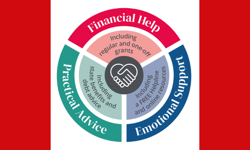
George Orwell once wrote: “Journalism is printing what someone else does not want printed: everything else is public relations.”
I think we can safely say that there were lots of wealthy people who did want the Paradise Papers “printed”. Orwell would, no doubt, have approved of the press’s role in taking possession, analysing and making sense of the huge amount of complex data involved.
The Paradise Papers were obtained by the German newspaper Süddeutsche Zeitung and shared by the International Consortium of Investigative Journalists, which includes the Guardian, the BBC and the New York Times. The papers reportedly represent the second biggest data leak in history (after the Panama Papers in 2016).
The documents originated from the offshore law firm Appleby, the corporate services providers Estera and Asiaciti Trust, and business registries in nineteen tax jurisdictions.
What they revealed were the great lengths some very wealthy people and institutions (including heads of state, “blue chip” multi-nationals, pop and sports stars) went to squirrel their money away from the prying eyes of the taxman. By using a labyrinth of oblique financial constructs, they sought to reduce (or avoid altogether) the amount of money they paid in tax.
Tax dodging is not cool at the best of times, but seems particularly galling now, given the scale of our national debt and the state of our public services.
Aside from the eye-watering sums involved, the truly shocking thing about all the revelations is that nothing illegal actually appears to have taken place. How, what, why?
If the result of all this sterling journalistic endeavour is an eventual plugging of these loopholes and healthier public finances, then the press must take the lion’s share of the credit. That’s why a dynamic free press is so essential to the wellbeing of society.










